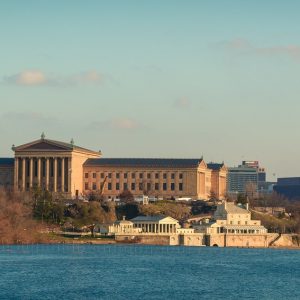The Stream, May 17: Cape Town Considers Water Limits Amid Drought
The Global Rundown
Cape Town, South Africa may limit the amount of water residents receive in response to a drought that federal officials say has “overwhelmed” the country. Parts of New Delhi experienced cuts in water service this week due to a shortage officials have blamed on Haryana. Water has become a prominent issue in Iran, but it may take a back seat to the economy in the country’s upcoming presidential election. The intensity of extreme rainfall events could increase 25 percent in Europe and North America over the next century, researchers found. Two civil and environmental rights organizations have asked Flint, Michigan to stop threatening foreclosure for residents who don’t pay their water bills.
“The whole of north Delhi has been affected. People are getting very little water. Some are getting it on alternate days. The government needs to seriously introspect its water infrastructure.” –Ashok Bhasin, president of the North Delhi Resident Welfare Association Federation, commenting on a water shortage that disrupted treatment plants and water service in the city on Tuesday. City officials blamed the shortage on a cut in water deliveries from Haryana. (Hindustan Times)
By The Numbers
100 liters Daily per-person water limit being considered by the city of Cape Town, South Africa, where the severity of the current drought caught officials off guard. News 24 ; Times Live
In context: Drought pushes South Africa to a water, energy, and food reckoning.
8,000 residents of Flint, Michigan have been given notices warning that they could face property liens — and possible home foreclosures — if they do not pay their water bills. Two civil and environmental rights groups sent a letter to the city Tuesday asking it to suspend the issuance of such notices. Michigan Radio
Science, Studies, And Reports
The intensity of extreme rainfall events could increase between 3 and 15 percent for each degree Celsius that global temperatures warm, according to a study by researchers at the Massachusetts Institute of Technology and the Swiss Federal Institute of Technology. While the changes vary by region, much of Europe and North America could see a 25 percent increase in the intensity of extreme rainfall events over the next century. Science Daily
On The Radar
Water scarcity, pollution, and other environmental issues have gained public and political prominence in Iran over the past decade, researchers say. Still, economic concerns may overshadow the environment during the country’s presidential election on May 19. Guardian
A news correspondent for Circle of Blue based out of Hawaii. She writes The Stream, Circle of Blue’s daily digest of international water news trends. Her interests include food security, ecology and the Great Lakes.
Contact Codi Kozacek




